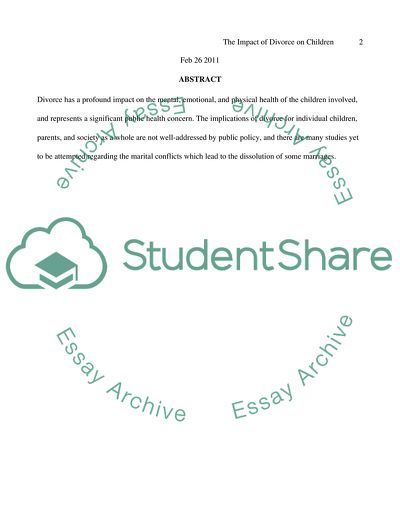Cite this document
(The Impact of Divorce on Children Research Paper - 1, n.d.)
The Impact of Divorce on Children Research Paper - 1. https://studentshare.org/psychology/1749062-the-impact-of-divorce-on-children
The Impact of Divorce on Children Research Paper - 1. https://studentshare.org/psychology/1749062-the-impact-of-divorce-on-children
(The Impact of Divorce on Children Research Paper - 1)
The Impact of Divorce on Children Research Paper - 1. https://studentshare.org/psychology/1749062-the-impact-of-divorce-on-children.
The Impact of Divorce on Children Research Paper - 1. https://studentshare.org/psychology/1749062-the-impact-of-divorce-on-children.
“The Impact of Divorce on Children Research Paper - 1”. https://studentshare.org/psychology/1749062-the-impact-of-divorce-on-children.


